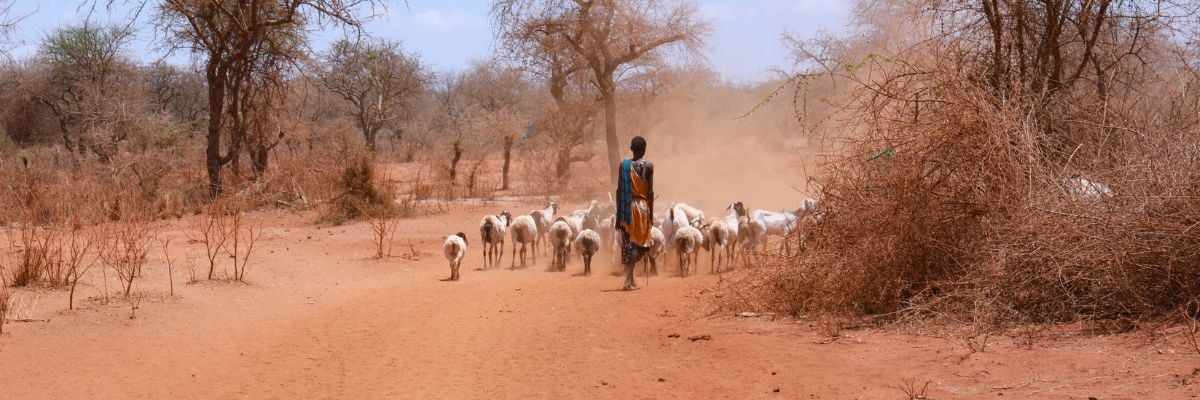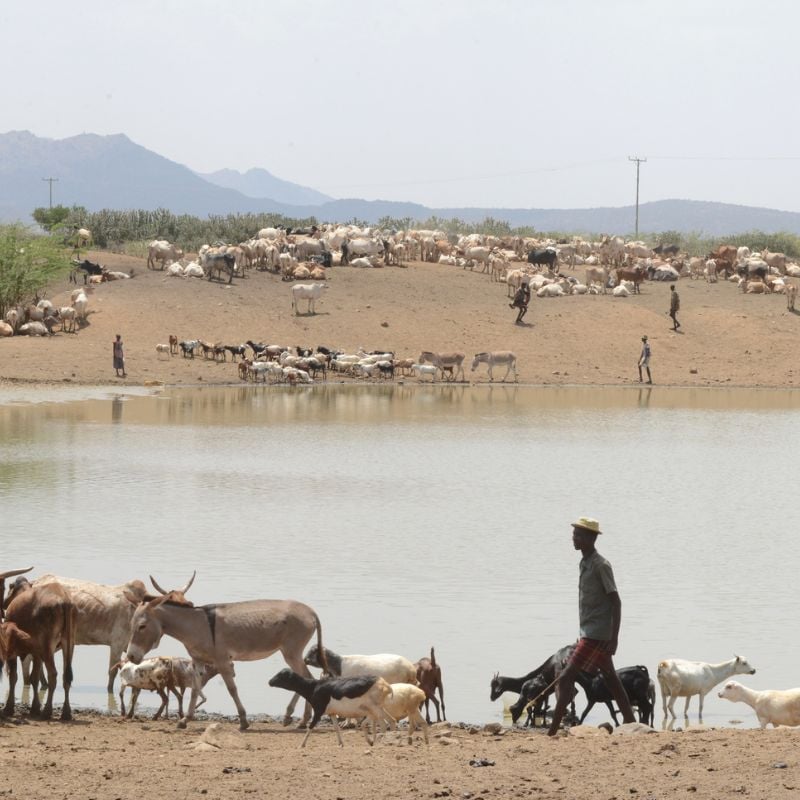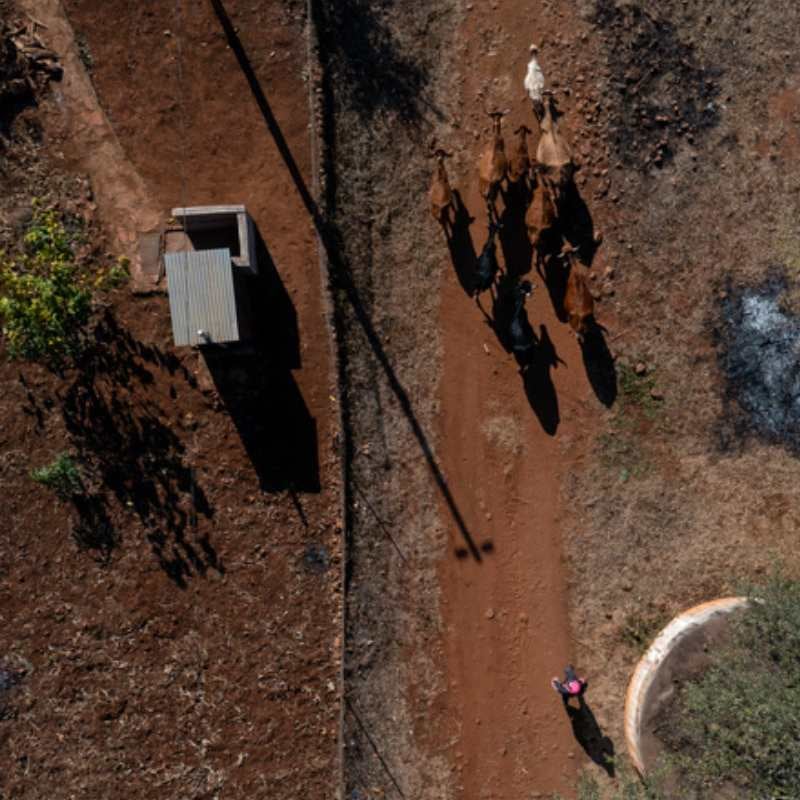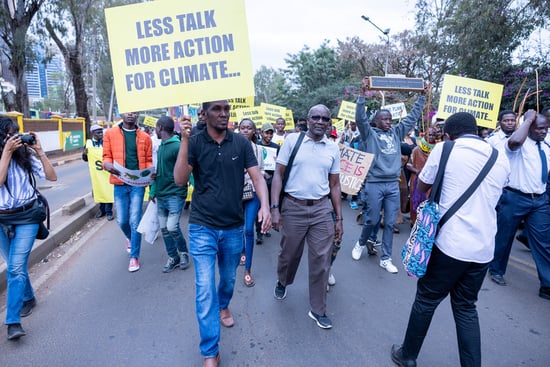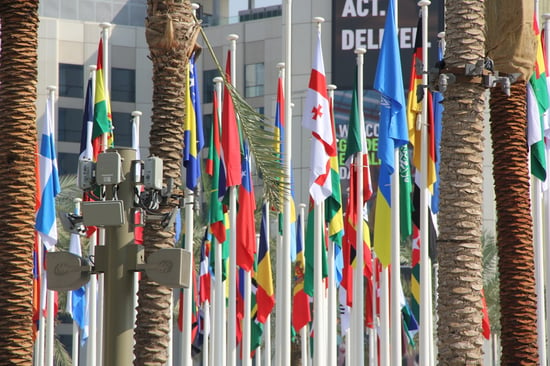At COP30, World Animal Protection Africa is ensuring the continent’s priorities — humane food systems, deforestation prevention, and climate justice — are on the global agenda.
What Is the COP Climate Conference?
The COP (Conference of the Parties) is the United Nations’ annual climate change conference, where world leaders meet to agree on global climate action. It brings together nearly all countries to reduce greenhouse gas emissions, protect nature, and support communities affected by climate change.
The COP was established under the UN Framework Convention on Climate Change (UNFCCC), signed by governments committed to tackling the climate crisis.
Since the first meeting in 1995, the COP has driven key global agreements such as the Paris Agreement. The next conference, COP30, will take place in Belém, Brazil, from 10–21 November 2025. This will be a vital moment for Africa and the world to push for stronger climate and wildlife protection.
Why does COP matter?
Decisions made at the UN Climate Change Conference (COP) impact every aspect of life on Earth. The outcomes of the COP shape our food systems, the health of the planet, and the well-being of animals and communities around the world.
But one major issue often gets overlooked; factory farming. Industrial livestock production is a leading source of greenhouse gas emissions and a key driver of deforestation and biodiversity loss.
That’s why World Animal Protection is calling for a just food transition. We want to help the world move away from factory farming and towards humane, sustainable farming systems that are better for animals, people, and the planet.
COP30 Agenda
This year at COP30, the focus is firmly on action and implementation revolving around the following themes:
- Transitioning energy, industry and transport.
- Stewarding forests, oceans and biodiversity.
- Transforming agriculture and food systems.
- Building resilience for cities, infrastructure and water.
- Fostering human and social development.
- Unleashing enablers and accelerators including on finance, technology and capacity-building.
To summarise, this year the COP aims to invite governments, business’, civil society and communities to commitment and act with a greater sense of urgency.
Why COP30 Matters for Africa’s Climate and Food Systems
Many of the key themes at COP, such as agriculture and food systems, biodiversity, and forests, sit at the intersection of climate action and animal welfare.
Our new report, “Subsidising Factory Farm Harm,” reveals that governments continue to fund destruction while neglecting the farmers and communities who could lead the way toward sustainability. For Africa, this is not just another global issue, it is a defining moment to decide whether to repeat the mistakes of industrial nations or to chart a humane, resilient, and truly African path forward.
At World Animal Protection, we want highlight how building sustainable food systems, safeguarding forests, and transforming industrial animal farming are essential to creating climate resilience that benefits animals, people, and the planet.
Africa’s Role in Global Climate Action
Across the continent, the effects of climate change in Africa are intensifying, from prolonged droughts in Kenya that threaten crops and livestock to deforestation in Nigeria and flooding in South Africa that disrupt lives and ecosystems. Yet Africa is at a crossroads. The continent still relies largely on traditional, community-led farming systems that, if protected, can form the backbone of a humane and sustainable future. Powerful global corporations are currently working to introduce large scale factory farming in Africa risking food sovereignty, biodiversity, and animal welfare.
By strengthening African food systems rooted in agroecology, indigenous knowledge, and local resilience, the continent can chart its own path toward climate justice in Africa.
What does World Animal Protection want to see at COP30?
At COP30 World Animal Protection will lead efforts to change food systems as a climate priority, highlighting five actionable steps:
- A Just Food Transition: supporting farmers and workers in shifting from factory farming to sustainable, humane agroecology.
- Global Shift from Industrial Animal Agriculture: high-income nations must lead, while supporting low-income countries in building local, resilient food systems.
- Redirect Public Funds: subsidies and climate finance should favour plant-based and high-welfare farming over factory farming.
- Stop Deforestation: governments must halt forest conversion for feed crops and livestock expansion.
- Joined-Up Policy Integration: climate, biodiversity, land-use, and food strategies must be harmonised, with full respect for Indigenous, small-scale farmers and animal welfare.
